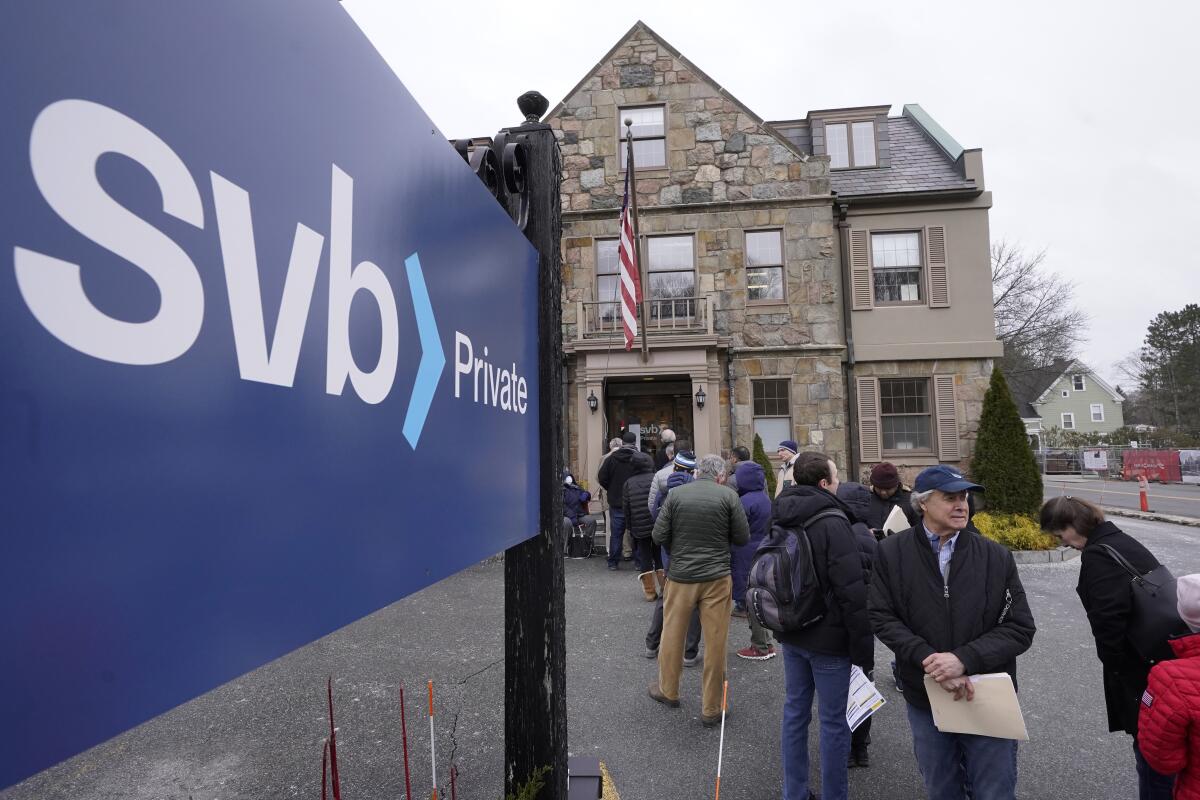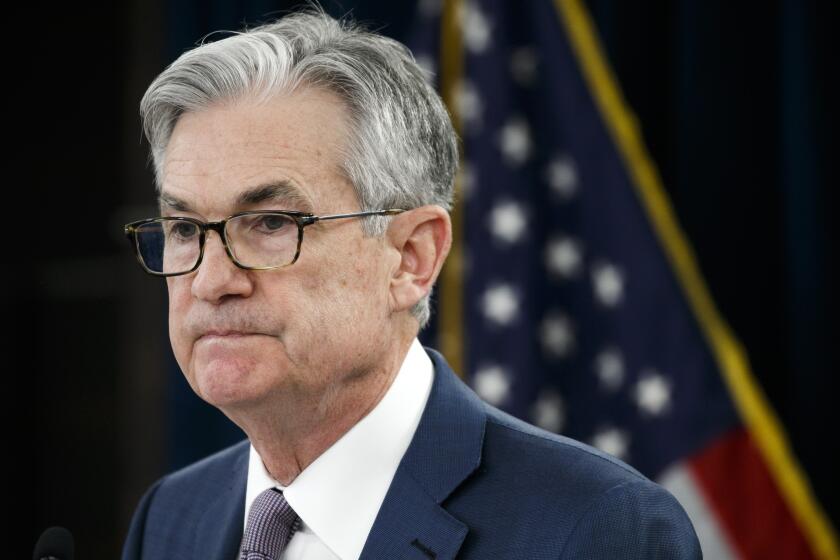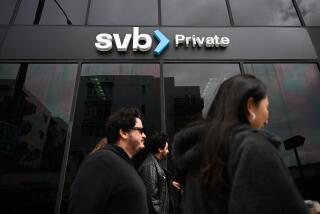Parent of Silicon Valley Bank seeks bankruptcy protection

- Share via
NEW YORK — The parent of Silicon Valley Bank, seized last week by the U.S., is filing for Chapter 11 bankruptcy protection.
SVB Financial Group, along with its chief executive and chief financial officer, were targeted this week in a class-action lawsuit that claims the company didn’t disclose the risks that future interest rate increases would have on its business.
SVB Financial Group is no longer affiliated with Silicon Valley Bank after its seizure by the Federal Deposit Insurance Corp. Its collapse was the second-biggest bank failure in U.S. history, after the demise of Washington Mutual in 2008.
The bank’s successor, Silicon Valley Bridge Bank, is being run under the jurisdiction of the FDIC and is not included in the Chapter 11 filing.
“The Chapter 11 process will allow SVB Financial Group to preserve value as it evaluates strategic alternatives for its prized businesses and assets, especially SVB Capital and SVB Securities,” William Kosturos, chief restructuring officer for SVB Financial Group, said in a statement Friday.
Regulated broker-dealer SVB Securities and funds of venture capital and private credit fund platform SVB Capital and its general partner entities are not included in the Chapter 11 filing and continue to operate normally.
Funded debt for SVB Financial Group is about $3.3 billion in aggregate principal amount of unsecured notes. There is no claim against SVB Capital or SVB Securities. SVB Financial Group also has $3.7 billion of preferred equity outstanding.
SVB Financial Group believes it has approximately $2.2 billion of liquidity. The Santa Clara, Calif.-based company said it‘s also exploring strategic options for other valuable investment securities accounts and other assets it has.
To fight inflation\, the Fed has historically raised interest rates. But in times of uncertainty, rate hikes could cause an overcorrection — and a recession.
The shuttering of Silicon Valley Bank a week ago and of New York-based Signature Bank on Sunday has revived bad memories of the financial crisis that plunged the U.S. into the Great Recession in 2008.
Over the weekend the federal government, determined to restore public confidence in the banking system, moved to protect all the banks’ deposits, even those that exceeded the FDIC’s $250,000 limit per individual account holder.
More to Read
Inside the business of entertainment
The Wide Shot brings you news, analysis and insights on everything from streaming wars to production — and what it all means for the future.
You may occasionally receive promotional content from the Los Angeles Times.











